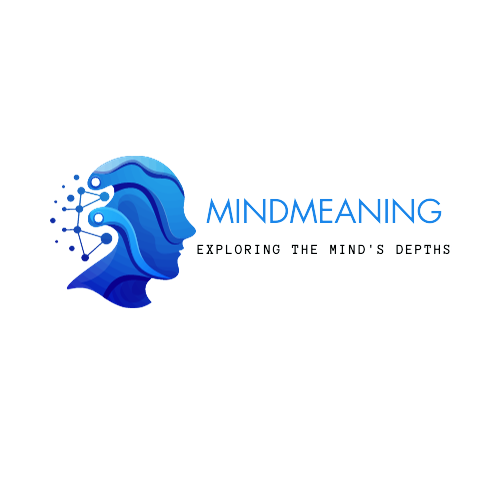Everything You Need to Know About Alternative Mental Health Care Solutions
Alternative mental health care solutions are gaining popularity as people seek alternative ways to address their mental health issues. In the past, the predominant approach to mental healthcare has been medication and therapy, but many people are now looking for alternative treatments that may provide more personalized and holistic care. There is a growing demand for alternative therapies such as art therapy, music therapy, acupuncture, and herbal medicine, as people become more aware of the benefits of a natural and holistic approach to health.
Alternative mental health care is not a new concept, but it has gained momentum in recent years as people become disillusioned with traditional approaches. Many people are hesitant to rely on medication alone, and there is a growing awareness of the impact that lifestyle changes can have on mental health. Alternative mental health care solutions can complement mental health recovery and traditional treatment options and offer a more personalized approach to mental healthcare.
In this blog post, we will explore several alternative mental health care solutions that are available to those seeking a more holistic approach to mental wellness.

1. What is Alternative Mental Health Care?
Alternative Mental Health Care refers to any approach to mental health treatment that falls outside of traditional Western medicine practices. This form of treatment seeks to promote mental health and well-being using holistic and natural approaches, such as meditation, yoga, acupuncture, and herbal supplements. Alternative Mental Health Care aims to treat the whole individual rather than just the symptoms of their mental health condition, by addressing the root cause of the problem. It emphasizes a patient-centered approach where the patient is an active participant in their care, and the goal is to empower patients to take control of their mental health and well-being. While alternative mental health care may not be suitable for everyone, it can provide a valuable complement to traditional treatment options.
2. Benefits of Alternative Mental Health Care
Alternative Mental Health Care has been gaining momentum, with more and more people seeking out ways to prioritize their mental health and well-being. The benefits of alternative treatments for mental health care are numerous, including the ability to supplement traditional forms of therapy or medication. Alternative mental health care solutions can include practices like meditation, aromatherapy, acupuncture, and more, which have been shown to reduce stress, anxiety, and depression symptoms. This may lead to an overall improvement in mental health and a more balanced lifestyle, as well as reducing the likelihood of experiencing negative side effects from prescription medication. Additionally, alternative mental health care solutions can often be more personalized and tailored to a person’s unique needs, allowing for a more effective treatment plan.
3. Common Types of Alternative Mental Health Care
Alternative mental health care solutions refer to methods and practices that go beyond traditional Western medicine treatments for mental health issues. There is a growing interest in alternative mental health care solutions as patients turn towards more holistic and natural remedies to treat their mental health issues. Here are the three common types of alternative mental health care solutions available:
1. Mind-body therapies: These are known as practices that focus on the connection between the mind, body and spirit. Mind-body therapies include yoga, meditation, and acupuncture. These techniques involve using breathing exercises, stretching techniques, and mindfulness, which have been found to reduce stress, anxiety, and depression, and help patients achieve a more balanced state of mind.
2. Herbal Medicine: Herbal medicine involves using plant materials for the treatment of various mental health conditions. For example, St. John’s Wort, which is a common herbal remedy, has been found to improve symptoms of depression.
3. Nutritional Therapy: Nutritional therapy involves examining how food affects mental health. Studies have shown that dietary changes, such as increasing omega-3 fatty acid intake, can lead to improved mental well-being. Nutritional therapists can help patients develop custom meal plans and identify any nutritional deficiencies that may be contributing to their mental health problems.
4. Finding the Right Provider
Alternative Mental Health Care (AMHC) solutions have gained increasing popularity over the years as more people seek alternative treatments for mental health challenges. Finding the right provider is a crucial step in accessing quality care that delivers desired results. It is important to research thoroughly before settling on an AMHC provider. The provider should have valid credentials and certifications, experience in treating mental health patients, and a good reputation within the industry. Additionally, make sure you choose an AMHC provider who offers the specific care you require, whether that’s counseling, therapy, or other treatment options. Verify their fees, insurance coverage, and payment options to ensure cost effectiveness, as not all insurance companies may provide coverage for AMHC. It’s also important to schedule a consultation with the provider to discuss your needs and ensure that you are comfortable with their approach to treatment.
5. Making the Most of Alternative Mental Health Care
Alternative Mental Health Care solutions are at an all-time high in popularity right now. With growing concerns over the side effects of traditional medications and therapies, more people are looking into non-traditional methods of treatment. One such alternative method is the use of herbal remedies for mental health, such as St. John’s Wort for mild to moderate depression or anxiety. Another method is the practice of meditation, which has been scientifically proven to reduce stress and anxiety. Additionally, some people choose to incorporate energy healing or acupuncture into their mental health care regimen. It’s important to note that while these methods may be effective for some, they should not be used as a replacement for professional medical advice or treatment. It’s always best to consult with a licensed mental health professional before making any changes to your treatment plan. However, by making the most of alternative mental health care options, individuals can potentially find relief and improve their overall mental wellbeing.
Conclusion
To conclude, alternative mental health care solutions offer a range of options to consider for people who may not have found success with traditional methods or are simply curious to try new approaches. From meditation and acupuncture to herbal medicine and therapy animals, there are plenty of ways to explore and address mental health concerns. It’s important to do your own research and consult with a qualified professional to determine the best course of action for you. At the end of the day, taking care of your mental health is about finding what works best for you and prioritizing self-care.
Here are some reputable organizations’ websites related to alternative mental health care solutions:
- National Alliance on Mental Illness (NAMI): https://www.nami.org/About-NAMI
- American Psychological Association (APA): https://www.apa.org/
- Mental Health America (MHA): https://www.mhanational.org/
- National Center for Complementary and Integrative Health (NCCIH): https://www.nccih.nih.gov/
- International Society for Complementary Medicine Research (ISCMR): https://iscmr.org/








